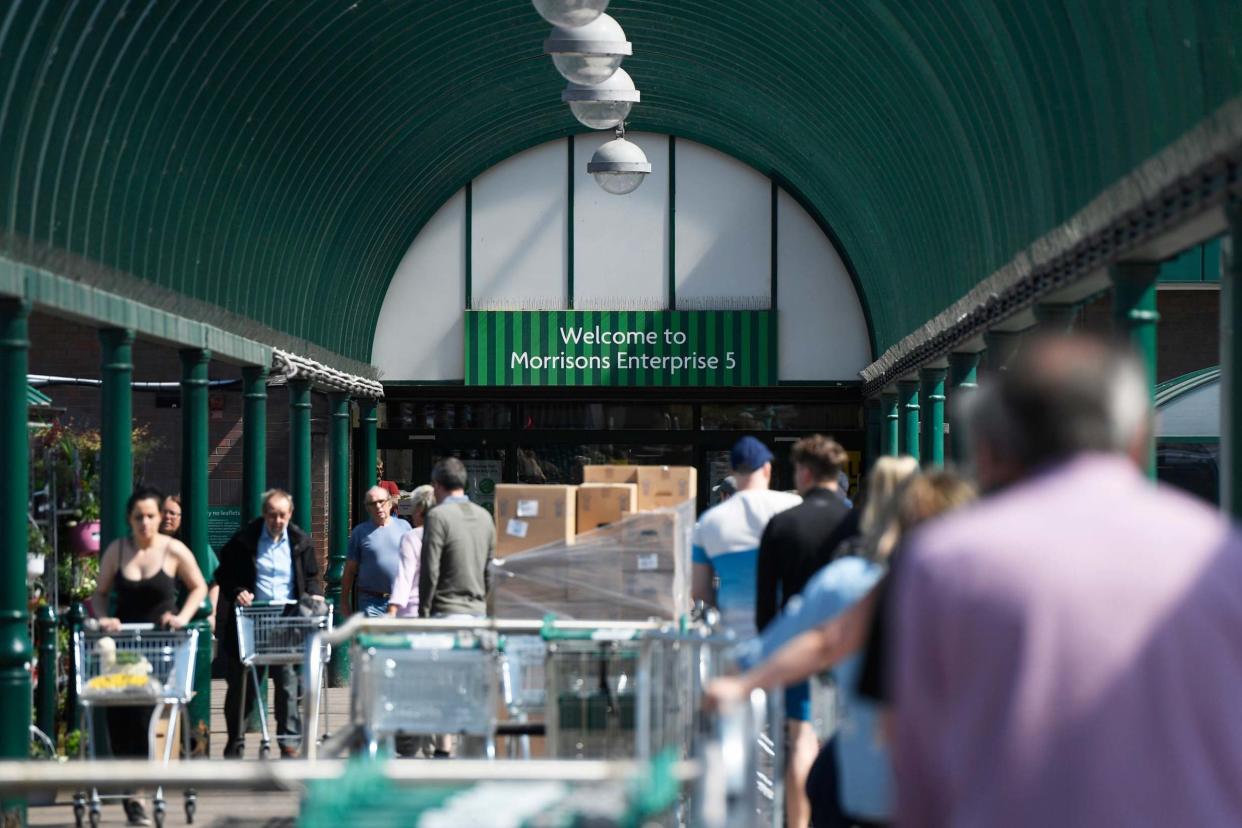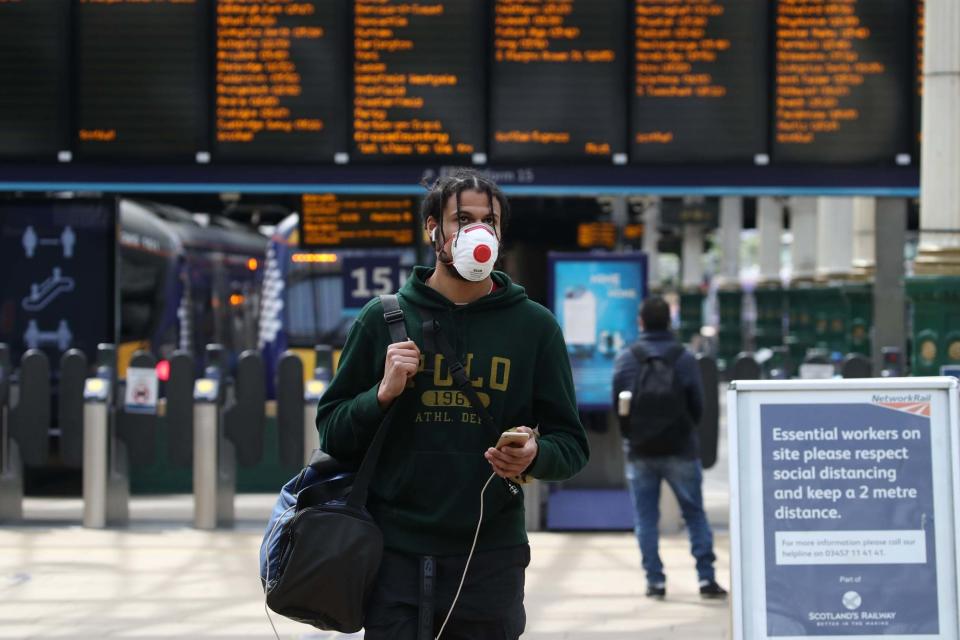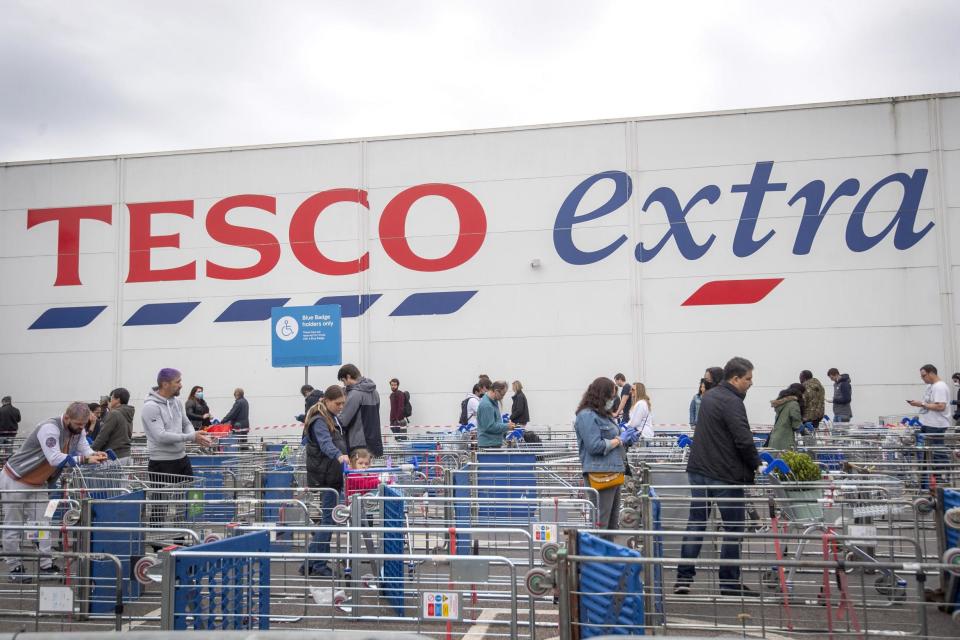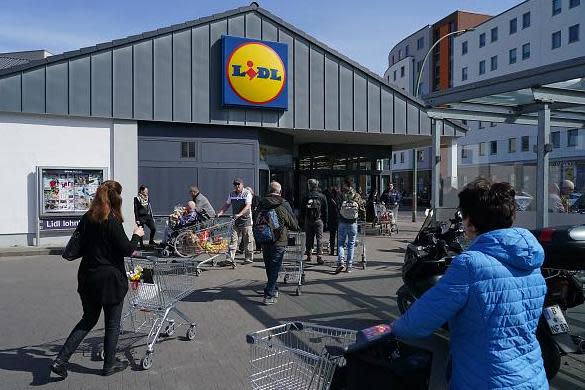Boris Johnson 'to relax Sunday trading laws to boost economy during coronavirus crisis'

Sunday trading laws could be suspended for a year under Government plans to stimulate the economy amid the coronavirus crisis.
Downing Street is said to be drawing up legislation to enable larger supermarkets to open for more than six hours on Sundays, according to The Times.
The paper also said cafes and pubs would be given fast-track approval to serve food and drinks outside, doing away with the need for the 28-day minimum statutory consultation period.
The Prime Minister's main advisor Dominic Cummings, the chancellor Rishi Sunak and the business secretary Alok Sharma are all allegedly in favour of the new proposals.

Nevertheless, Mark Spencer, the chief whip, is worried it will be blocked by Labour and more traditionalist Conservative MPs.
It comes as leading scientists said an inquiry into the Covid-19 pandemic in the UK is vital before a second wave hits, as the death toll rises to over 40,000.
Successive politicians have attempted to relax Sunday trading laws in the face of opposition; most recently, in 2016, former prime minister David Cameron was forced to drop plans to extend Sunday trading hours, after suffering a humiliating Commons defeat which saw 27 Tories joining forces with opposition parties.
Certain supermarkets with local convenience stores that are unaffected by Sunday trading laws are against the reforms, but others such as Asda and Morrisons are eager to see the plans go ahead.

The altered Sunday trading laws would coincide with a larger bailout intended to boost retail and hospitality businesses as lockdown restrictions are eased.
This will include licensing laws being streamlined so that cafés and restaurants can serve food outside, removing the present 28-day minimum statutory consultation period.
Ministers have also turned their attention to pubs, and want them to remodel so they're able to serve customers outside.
Planning restrictions on high street properties will also be simplified, so it's easier to switch between shops, retail and residential uses.
The new Sunday trading measures and planning laws could be introduced as soon as restrictions end, with ministers convinced the changes will better equip high streets to adapt to a post-coronavirus economy.
In addition, councils will be encouraged to pedestrianise more streets and to allow more outdoor markets so that businesses can adapt to social distancing measures.
The Sunday Trading Act of 1994 allows large stores to open for no more than six consecutive hours between 10am and 6pm, although a cross-party group of 40 MPs is pushing the government to scrap them.

However, the proposals come amid concerns regarding the coronavirus reproduction rate in parts of England, with new data suggesting the R value is now around one in the North West.
The value used by the Government remained between 0.7 and 0.9 nationwide, although the figure has a two to three-week lag, so it does not account for the latest easing of the lockdown.
A separate report from Public Health England (PHE) and Cambridge University, which estimates what the value is currently, put the North West on 1.01 and the South West on 1.00.
Health Secretary Matt Hancock told the daily Downing Street press conference that new figures on the R confirm “there is a challenge in the North West of England to address and, to a lesser degree, in the South West of England”.
He said the Scientific Advisory Group on Emergencies (Sage) believes the R is below one across the UK but the Government wants to “increasingly have an approach in tackling local lockdowns where we spot a flare-up”.

 Yahoo News
Yahoo News 
